 Petzlover
Petzlover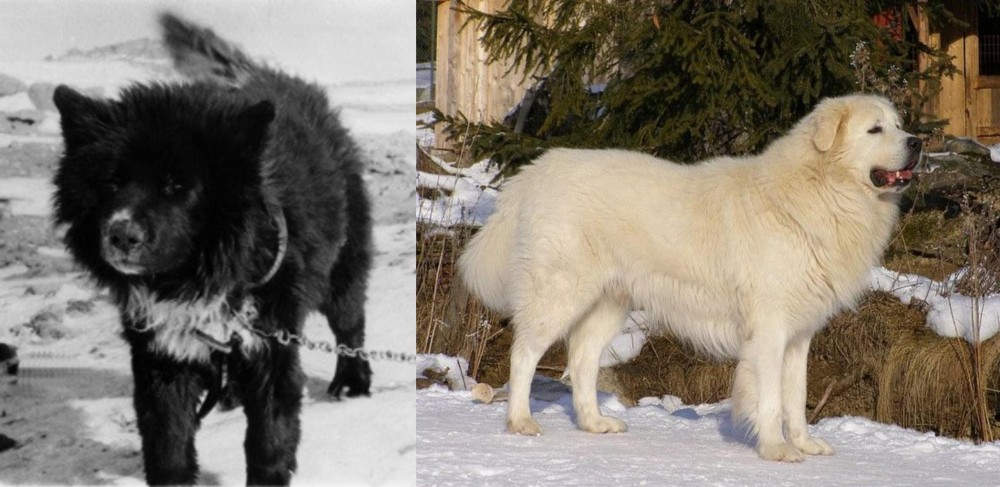 Sakhalin Husky is originated from Japan but Slovak Cuvac is originated from Slovakia. Both Sakhalin Husky and Slovak Cuvac are having almost same height. Both Sakhalin Husky and Slovak Cuvac are having almost same weight. Both Sakhalin Husky and Slovak Cuvac has same life span. Both Sakhalin Husky and Slovak Cuvac has same litter size. Both Sakhalin Husky and Slovak Cuvac requires Moderate Maintenance.
Sakhalin Husky is originated from Japan but Slovak Cuvac is originated from Slovakia. Both Sakhalin Husky and Slovak Cuvac are having almost same height. Both Sakhalin Husky and Slovak Cuvac are having almost same weight. Both Sakhalin Husky and Slovak Cuvac has same life span. Both Sakhalin Husky and Slovak Cuvac has same litter size. Both Sakhalin Husky and Slovak Cuvac requires Moderate Maintenance.
 Known also as the Karafuto-Ken, the Sakhalin Husky is a dog that has been used as a sled dog, but which is now almost extinct.
Known also as the Karafuto-Ken, the Sakhalin Husky is a dog that has been used as a sled dog, but which is now almost extinct.
Hailing from Japan, it is believed that in 2011, there were only two surviving members of the breed in Japan. There isn’t much history on these dogs, but we do know that it is an old breed. They've been used by explorers to the South Pole. One such explorer was Robert Falcon Scott.
They’re extremely tough dogs, known for enduring in the snow under extreme conditions. The dog breed isn’t recognized as a standardized breed by any of the major kennel clubs.
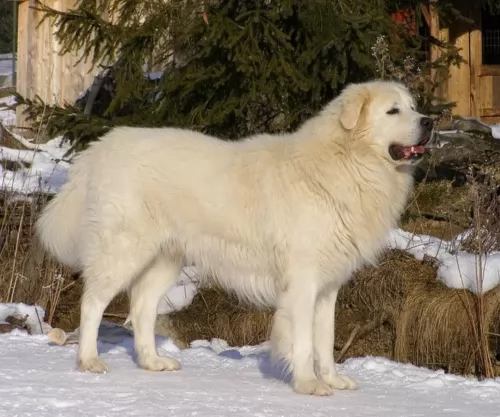 Looking quite a bit like the Pyrenean Mountain Dog, the Slovak Cuvac is a large dog that has served as a guard dog. The Slovensky Cuvac is still used on sheep farms as he isn’t afraid of wolves and bears and will take them on if needs be.
Looking quite a bit like the Pyrenean Mountain Dog, the Slovak Cuvac is a large dog that has served as a guard dog. The Slovensky Cuvac is still used on sheep farms as he isn’t afraid of wolves and bears and will take them on if needs be.
Records of this dog have been kept since the 17th century already, and when the breed started dying out, a certain Dr Antonin Hruza put in efforts to revive the dog.
The registered breeding of the Slovensky Cuvac was established in Czechoslovakia and a club for the dog was established in 1933. A written standard was established in 1964. The dog is not recognized by the Fédération Cynologique Internationale.
 This is a medium sized dog standing at between 56 and 66cm in height and weighing between 30 and 40kg. His coat is thick and can be in a number of colours such as brown, tan, cream, grey or black. The ears are small and pointed and slightly tilted forwards. The tail is long and sometimes curls over the back while at other times it is held straight or down.
This is a medium sized dog standing at between 56 and 66cm in height and weighing between 30 and 40kg. His coat is thick and can be in a number of colours such as brown, tan, cream, grey or black. The ears are small and pointed and slightly tilted forwards. The tail is long and sometimes curls over the back while at other times it is held straight or down.
These dogs are known for their loyalty, affection and bravery. The dog is highly intelligent and will respond well to training and socialization.
It's a rare dog breed, calm and confident. A perfect example of their amazing characteristics is seen in the film ‘Eight Below’ where these wonderful dogs were left behind on a scientific expedition that went wrong.
The dogs had to struggle for survival in the frozen wilderness. The Sakhalin Husky just wants to please, and is alert and intelligent, doing well in a family where there are children.
Statues have been erected to honor these Sakhalin Huskies who died on some of these ill-fated expeditions.
These dogs are totally devoted to their owners and they’re full of confidence, they’ve got immense strength and they need a lot of physical stimulation every day.
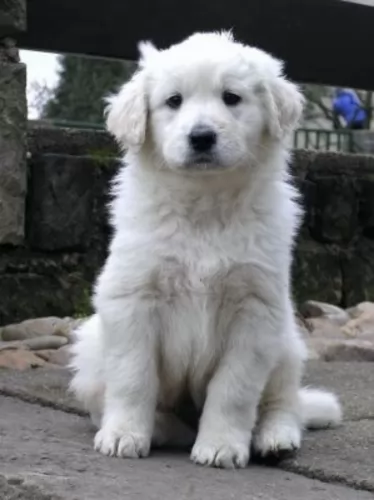 This is a large dog standing at between 59 and 70cm in height and weighing between 31 and 44kg.
This is a large dog standing at between 59 and 70cm in height and weighing between 31 and 44kg.
The neck is broad and has quite a bit of fur around it. The head is large, the eyes dark brown, the double coat is white and thick and medium length. The eyes are brown, the ears medium length and floppy and the tail long and furry.
This is a robust dog, used to spending time outdoors keeping watch over livestock. When he is invited into the home, he is gentle and well behaved, more so when he has been trained and socialized.
He is loving and loyal towards his human family and will get on well with children in the home. He isn’t the brightest dog but you can still have him trained.
 When you bring these dogs into your home, you’re bringing in lots of excellent characteristics.
When you bring these dogs into your home, you’re bringing in lots of excellent characteristics.
He is loyal, affectionate and smart. With his above average intelligence, you can easily train him. He is also a playful breed and the kids will enjoy him as a good playmate.
They’re gentle dogs too and will do well in a home where people are fair, patient, kind and consistent with their handling of him. Known to be an excellent therapy dog, having this dog in your home will enhance your quality of life.
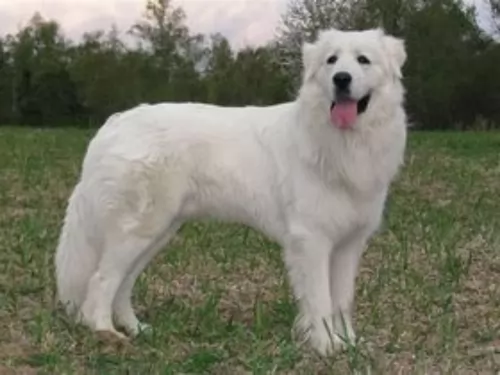 Your playful Slovak Cuvac is an affectionate dog, wanting nothing more than to be totally involved in his family’s life.
Your playful Slovak Cuvac is an affectionate dog, wanting nothing more than to be totally involved in his family’s life.
He is social and loving and also makes an excellent watchdog. He’s a big dog so think carefully before you bring him into your home. Many dog owners like the look of a big dog and forget that it costs a lot of money to feed a big dog and to pay for vet fees.
This big dog is wanting to be part of your family and not just to be discarded when you find that he is costing you too much.
 The brave Sakhalin Husky can live to be between 12 and 14 years of age but these dogs can succumb to quite a few of the common dog diseases there are -
The brave Sakhalin Husky can live to be between 12 and 14 years of age but these dogs can succumb to quite a few of the common dog diseases there are -
This is a hereditary disease of the cornea. You’ll see small white dots in his cornea and the dog can experience hazy vision.
This problem with the hips can be debilitating for your sled dog, and both hips can be affected. It can be painful for your dog as arthritis sets in. It is important to see that your dogs don’t put on weight as this puts pressure on the joints. Your dog will need to see the vet, and surgery might be a treatment option.
This is a condition that affects Huskies between 3 and 4 months of age and can result in hair loss or problems with the skin. It is actually fairly rare in dogs and diagnosed by microscopic examination of the hair shaft. You will need to get your pet to the vet because it can lead to alopecia.
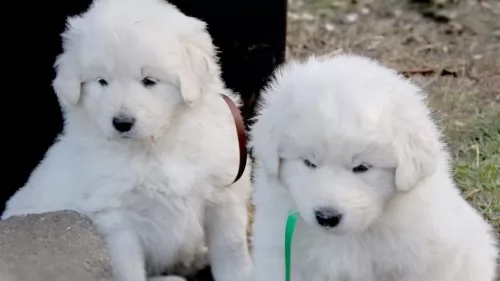 This is a healthy dog breed, but as with many large dogs, hip dysplasia is a threat. Hip dysplasia is always reason for concern as the condition can reduce a dog’s quality of life.
This is a healthy dog breed, but as with many large dogs, hip dysplasia is a threat. Hip dysplasia is always reason for concern as the condition can reduce a dog’s quality of life.
It is distressing seeing your once active pet becoming reluctant to play and move around.
Canine hip dysplasia is a common skeletal condition. It can strike any size dog but is more prevalent with large dogs. The ball and socket of the hip doesn’t fit properly and deterioration sets in resulting in loss of function of the joint.
You will need to get your dog to the vet who will perform a physical exam and discuss treatments to alleviate the pain your dog can experience.
 Feed your Sakhalin Husky a commercially manufactured dog formula that caters to his energy and digestive needs.
Feed your Sakhalin Husky a commercially manufactured dog formula that caters to his energy and digestive needs.
Choose high-quality dog food with natural ingredients. Try and include some home-made food into your dogs diet. Boiled chicken, brown rice or pasta, sweet potatoes, carrots and spinach will do him wonders and you can chop it up and add some into the dry kibble as a treat twice a week.
Some raw meat occasionally is also important to prevent skin problems. Be sure that cool, fresh water is available for your pet at all times.
This will require regular exercise. Walks are always good, but he will require something more hectic such as long hikes and frisbee or ball throwing games.
A Husky’s dense double-coat must be brushed at least twice a week as he is a fairly heavy shedder.
His nails grow quickly and these will need to be trimmed. Even though he has erect ears, you will need to check inside for cleanliness to avoid canine ear infections.
Check inside his mouth as well for bad teeth as these can have a detrimental affect on his health
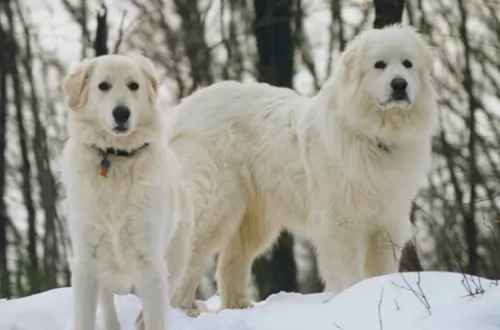 ◆The thick white hair will require regular grooming to keep it free from burrs and dirt. He sheds so this brushing will help him to look more groomed.
◆The thick white hair will require regular grooming to keep it free from burrs and dirt. He sheds so this brushing will help him to look more groomed.
◆The nails should be trimmed regularly and the ears too should be checked for redness and infection. You’ll need to look inside his mouth too as a rotting tooth can cause havoc within his body. A rotten tooth can also cause him tremendous pain and he has no way of telling you this.
◆Have your pet spayed or neutered if you don’t want any puppies. This is better for your dog’s health in the long run too.
◆Your Slovak Cuvac is going to need a lot of exercise as they have always been used to roaming the mountains watching over livestock.
◆This is a big dog so if you buy commercially manufactured food, make sure its for large, energetic dogs. There are good commercially manufactured dog foods on the market – just make sure you buy the best one for your pet to enhance health and longevity.
Try and give him some home made food too. Healthy food which won’t jeopardise his digestion is boiled chicken, brown rice or pasta and spinach, sweet potatoes and carrots. These can all be chopped up and small portions mixed into the dry kibble twice a week as a treat.
Try and include some raw meat occasionally. Your dog will thank you for not giving him exotic people foods which can do lots of harm. Ensure there is always a bowl of fresh, cool water within his reach.